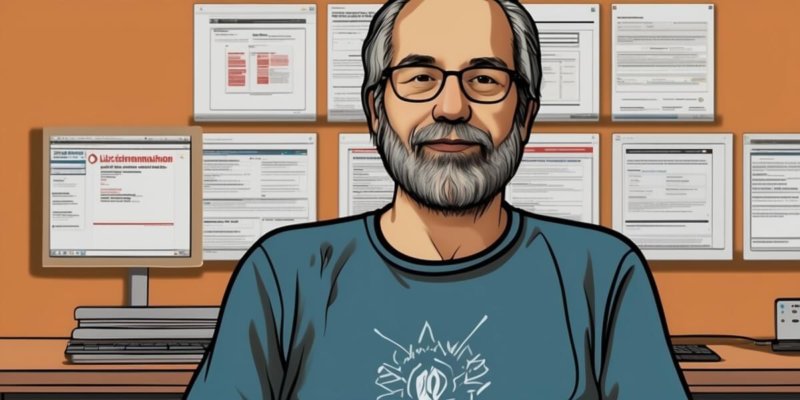- Bruce Perens is concerned about the abuse and exploitation of open source licenses by big corporations like IBM.
- Open source has failed to reach the common person, and the emergence of the Post-Open movement aims to address this by delivering user-friendly applications.
- Post-Open also seeks to shift corporate relationships with developers and ensure fair compensation for their work.
- The open source community must confront external issues, such as the consequences of AI technology and regulatory restrictions on technology sharing with countries like China.
- Perens urges exploration of more robust licensing models to replace current open source licenses, as he is critical of current efforts and supports a radically new approach.
Interview with Bruce Perens: What Comes After Open Source?
Bruce Perens, an influential figure in the Open Source movement, is looking towards the future. He laments the status quo, saying that „our licenses aren’t working anymore.“ According to Perens, the open source community needs to address this issue, particularly in light of circumvention abuse of the GPL.
Issues in the Open Source Community
Perens raises concerns about how big corporations, like IBM, are exploiting open source licenses, yielding poor outcomes for the community. He feels that companies like Red Hat, now under IBM’s stewardship, are no longer honoring the spirit of the GPL, particularly in relation to their changes to CentOS and RHEL.
Furthermore, open source has failed to reach the common person. Despite being widely infused in proprietary software systems, the everyday user isn’t fully aware of the benefits of open source. This perception may change with the emergence of Post-Open, a movement that builds upon the principles of open source while addressing existing shortcomings.
The Post-Open Paradigm
Post-Open aims to shift corporate relationships with developers and ensure fair compensation for their work. This movement seeks to deliver user-friendly applications, making it truly beneficial for everyday people.
The challenge, Perens admits, is finding an entity that efficiently manages and distributes funds while maintaining transparency and avoiding forking into disparate initiatives.
In addition to addressing these internal challenges, the open source community must confront external issues, such as the consequences of AI technology and regulatory restrictions on technology sharing with countries like China. Perens remains optimistic about the potential for peace and collaboration between nations.
The Future of Licensing
Finally, Perens urges exploration of more robust licensing models to replace current open source licenses. He is critical of current efforts and expresses support for a radically new approach that aligns more effectively with today’s technology landscape.





